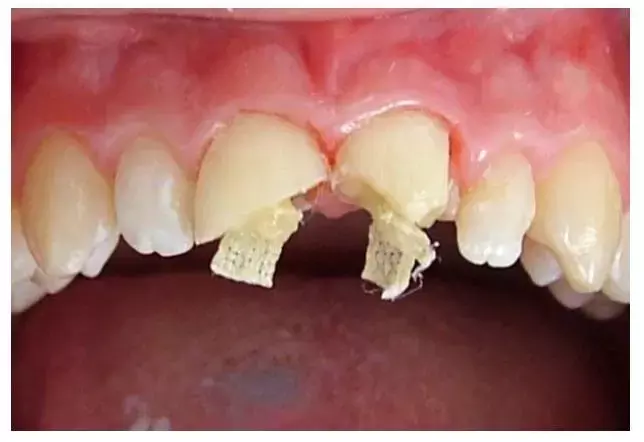- Home
- Medical news & Guidelines
- Anesthesiology
- Cardiology and CTVS
- Critical Care
- Dentistry
- Dermatology
- Diabetes and Endocrinology
- ENT
- Gastroenterology
- Medicine
- Nephrology
- Neurology
- Obstretics-Gynaecology
- Oncology
- Ophthalmology
- Orthopaedics
- Pediatrics-Neonatology
- Psychiatry
- Pulmonology
- Radiology
- Surgery
- Urology
- Laboratory Medicine
- Diet
- Nursing
- Paramedical
- Physiotherapy
- Health news
- Fact Check
- Bone Health Fact Check
- Brain Health Fact Check
- Cancer Related Fact Check
- Child Care Fact Check
- Dental and oral health fact check
- Diabetes and metabolic health fact check
- Diet and Nutrition Fact Check
- Eye and ENT Care Fact Check
- Fitness fact check
- Gut health fact check
- Heart health fact check
- Kidney health fact check
- Medical education fact check
- Men's health fact check
- Respiratory fact check
- Skin and hair care fact check
- Vaccine and Immunization fact check
- Women's health fact check
- AYUSH
- State News
- Andaman and Nicobar Islands
- Andhra Pradesh
- Arunachal Pradesh
- Assam
- Bihar
- Chandigarh
- Chattisgarh
- Dadra and Nagar Haveli
- Daman and Diu
- Delhi
- Goa
- Gujarat
- Haryana
- Himachal Pradesh
- Jammu & Kashmir
- Jharkhand
- Karnataka
- Kerala
- Ladakh
- Lakshadweep
- Madhya Pradesh
- Maharashtra
- Manipur
- Meghalaya
- Mizoram
- Nagaland
- Odisha
- Puducherry
- Punjab
- Rajasthan
- Sikkim
- Tamil Nadu
- Telangana
- Tripura
- Uttar Pradesh
- Uttrakhand
- West Bengal
- Medical Education
- Industry
Compared to metal posts, prefabricated carbon and glass fiber posts may reduce risk of tooth fracture in endodontically treated teeth

Compared to metal posts, prefabricated carbon and glass fiber posts may reduce risk of tooth fracture in endodontically treated teeth suggests a new study published in the journal of prosthetic dentistry.
Different varieties of fiber and metal intraradicular posts have been used for the restoration of endodontically treated teeth with insufficient sound tooth structure. Evidence on the comparative efficacy of posts in a clinical setting is insufficient to provide clear clinical guidelines and recommendations.
The purpose of this systematic review with network meta-analysis was to assess the comparative efficacy of fiber and metal posts used for the restoration of endodontically treated teeth.
A search was conducted for trials published in Medline, Scopus, PubMed, and Cochrane Central Register of Controlled Trials from inception until November 2022. The study was registered with the International Prospective Register of Systematic Reviews (PROSPERO) (CRD42022384340). A network meta-analysis was performed on data from randomized controlled trials that assessed the comparative efficacy of fiber posts and metal posts for the restoration of endodontically treated teeth. Subgroup analyses were performed to compare all the varieties of fiber and metal posts. The types of posts were ranked according to their efficacy using the Surface Under the Cumulative Ranking (SUCRA) system. The Grading of Recommendations, Assessment, Development, and Evaluations (GRADE) approach was used to assess the level of certainty of evidence.
Results
Twenty-five articles were included in the quantitative analysis. Fiber posts (RR=0.15 [95% CI: 0.06, 0.33]) significantly prevented tooth fracture as compared with no posts. Prefabricated carbon fiber posts (RR=0.06 [95% CI: 0, 0.54]) ranked highest followed by custom glass fiber posts (RR=0.15 [95% CI: 0.04, 0.52]) and prefabricated glass fiber posts (RR=0.22 [95% CI: 0.07, 0.62]) in the outcome of tooth fracture. Metal posts (RR=0.24 [95% CI: 0.12, 0.46]) ranked higher than fiber posts (RR=0.39 [95% CI: 0.27, 0.56]) in the outcome of debonding. Custom gold alloy posts (RR=0.12 [95% CI: 0.03, 0.48]), prefabricated gold alloy posts (RR=0.04 [95% CI: 0.00, 0.87]), and prefabricated titanium posts (RR=0.21 [95% CI: 0.10, 0.45]) had higher rankings in the outcome of debonding or loss of retention of a post followed by custom glass fiber posts (RR=0.37 [95% CI: 0.21, 0.63]) and prefabricated glass fiber posts (RR=0.38 [95%CI: 0.25, 0.58]). Prefabricated glass fiber posts (RR=0.40 [95% CI: 0.20, 0.81]) had statistically significant differences in the outcome of secondary caries. The GRADE approach determined a moderate level of certainty of evidence.
The use of a fiber post when indicated results in reduced risk of tooth fracture as compared with no post. Prefabricated carbon fiber posts, prefabricated glass fiber posts, and custom glass fiber posts reveal a lower risk of tooth fracture. Overall, the use of prefabricated glass fiber posts had a lower risk of tooth fracture, debonding, and secondary caries. However, more trials with longer follow-up periods are recommended to enhance the certainty of evidence.
Reference:
Koay Chun Giok, Sajesh K. Veettil, Rohit Kunnath Menon. Comparative effectiveness of fiber and metal posts in the restoration of endodontically treated teeth: A systematic review with network meta-analysis. Published:October 10, 2023DOI:https://doi.org/10.1016/j.prosdent.2023.08.022
Keywords:
Compared, metal posts, prefabricated, carbon, glass, fiber, posts, reduce, risk, tooth, fracture, endodontically, treated, teeth, Koay Chun Giok, Sajesh K. Veettil, Rohit Kunnath Menon, the journal of prosthetic dentistry
Dr. Shravani Dali has completed her BDS from Pravara institute of medical sciences, loni. Following which she extensively worked in the healthcare sector for 2+ years. She has been actively involved in writing blogs in field of health and wellness. Currently she is pursuing her Masters of public health-health administration from Tata institute of social sciences. She can be contacted at editorial@medicaldialogues.in.
Dr Kamal Kant Kohli-MBBS, DTCD- a chest specialist with more than 30 years of practice and a flair for writing clinical articles, Dr Kamal Kant Kohli joined Medical Dialogues as a Chief Editor of Medical News. Besides writing articles, as an editor, he proofreads and verifies all the medical content published on Medical Dialogues including those coming from journals, studies,medical conferences,guidelines etc. Email: drkohli@medicaldialogues.in. Contact no. 011-43720751


